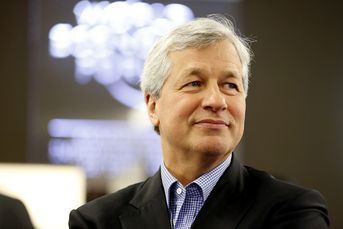What 2021 has taught us

The six major industry developments of 2021 truly reflect news-making markers in the areas of regulation, investments, taxes, technology, retirement plans and the economic condition of the advice business.
Opining about the year gone by is a lot easier than forecasting what’s coming in the year ahead. But drawing the right conclusions from the recent past and assigning the appropriate level of importance to a year’s particular events pose their own challenges.
To be sure, the six major industry developments of 2021 identified in this issue by the InvestmentNews reporting team truly reflect news-making markers in the areas of regulation, investments, taxes, technology, retirement plans and the economic condition of the advice business. But when we look back at 2021 later in the decade, which of the developments noted will seem prescient, which will seem like a lot of fuss over nothing, and which important developments will have been overlooked altogether?
One underlying thread in the takeaways from 2021 is that in most areas the developments are a continuation of trends that have been in place for many years, many having to do with the state of the economy generally and interest rates in particular.
The already heated market for RIA firms, for example, was turbocharged by adviser concerns about the possibility of higher tax rates in the near future. Uncertainty over the sunset of the current estate tax exclusion at the end of 2025 also may have been a factor.
But fueling the merger movement, especially in the case of the private equity firms that have been drawn to the business by its combination of steady returns and the potential for growth, has been a continuation of our longstanding low-interest-rate environment. Just as participants may have been drawn to the deal table in 2021 over concerns about rising tax rates, the possibility of interest rates going higher may have driven dealmakers to do deals before their costs rise.
While today’s low rates have cut into the revenue that broker-dealers earn from their cash float, their increasing reliance on fees has served them well. As Bruce Kelly noted, the largest broker-dealers now derive half their revenue from fees. This is another case where the trend is a friend.
The long-term trend toward lower fees in asset management also was evidenced in developments noted by Jeff Benjamin and Sean Allocca. One development was the booming popularity of exchange-traded funds, which drove fund managers to do the first conversions of mutual funds into ETFs. The other was the growing popularity of direct indexing, which effectively enables investors to create their own mutual fund or ETF as a result of advances in technology that make mimicking an index possible.
Technology, and especially cybersecurity, is a growing concern for regulators, as Mark Schoeff Jr. noted. The pandemic has only heightened concerns about the issue as more and more of the industry’s personnel make working from home, at least part of the time, a standard condition of employment.
It’s not easy to say which of these issues will grow in importance in the years ahead, or which will seem quaint. One thing is for certain, it’s impossible to know what unnoticed development took place in 2021 that will have major long-run impact. Consider that few people in 2012 took notice of a Bay Area startup that had just completed a beta test of its product and signed its first customer. That company, which launched its service in January 2013, was Zoom.
Learn more about reprints and licensing for this article.







